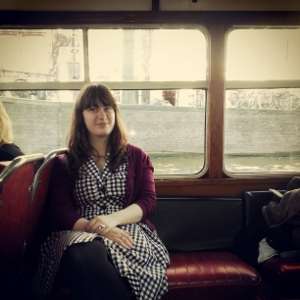The Moscow State Symphony Orchestra continued their European tour with three programs at the Cadogan Hall, all with works by Tchaikovksy. As far as programming goes, the MSSO played it safe, but when it comes to Tchaikovksy this is not necessarily a criticism. In fact, the three pieces played on the first evening are my three favourite by the composer; his Marche Slave, First Piano Concerto, and Fourth Symphony. All three works are boisterous and intense, and combined with the Moscow State Symphony Orchestra who could be described in those exact same terms, the evening proved to be filled to the brim with energy.
Marche Slave is one of my favourite guilty pleasure pieces. It is Russian bombast at its finest and not very subtle, but it is wonderfully dramatic and energizing. The Marche Slave is also a great way to open a concert: at ten minutes long it immediately grabs everyone’s attention by force. The piece uses themes from Serbian folk songs as well as the Russian national anthem, and it is this combination that makes it all the more interesting. The Moscow State Symphony Orchestra made sure that the music was not reduced to pompousness, their fast pace and ear-piercing highs caused many a heart to race. At times the balance in the orchestra was slightly off, there were moments where they sounded shrill and lacked a certain depth, and times where the violins overshadowed the rest of the orchestra – but overall the performance was more than satisfying, as evidenced by very enthusiastic applause.
The Piano Concerto no. 1 is a much-loved concerto, and with good reason. The first dedicatee, Nikolai Rubinstein, actually refused the piece in 1874, considering it “worthless”. This kind of reaction to the concerto is hard to understand nowadays, and thankfully Tchaikovksy found a second dedicatee, Hans von Bülow, who was eager to perform its première in 1875. The concerto consists of three movements, the first opening with commanding brass, after which the piano and strings join in. Soloist Tatiana Kolesova was a spirited addition to the stage. She clearly revelled in the performance, and brought a lightness of touch to the more moving section, while the opening of the first movement, and the final movement in particular, received an impassioned performance.
Tchaikovksy’s Symphony no. 4 is still an incredible work, no matter how many times I hear it. It was written during a particularly difficult period in Tchaikovksy’s life – including a marriage he did not enjoy and a failed suicide attempt, and the famous “Fate” theme in the symphony is often thought to reflect this. It was not all misery for Tchaikovksy, however, as he had struck up a lucrative friendship with Nadezhda von Meck, who became his patroness and to whom the symphony is dedicated. It also thanks to her that a programme of the symphony, written by Tchaikovksy, remains.
The Moscow State Symphony Orchestra’s performance of this symphony was, in a word, fast. It was indeed also at the faster and more violent moments that the orchestra seemed most comfortable, which is something that I noticed throughout the concert. Thankfully the second movement was treated with a subtlety and warm sound that I had not yet heard during the performance, and because of this the orchestra delivered the best music of the evening in this movement. Tchaikovsky described the mood of this movement as “the melancholy feeling which comes in the evening when one sits alone, tired from work, having picked up a book but let it fall from one’s hands”, a feeling of desolation, which became almost tangible in the MSSO’s performance. Soon after this movement it was back to business, with the fourth, final part of the symphony being particularly raucous.
The concert left me pondering. Generally I like my classical music loud and fast, and it is true Tchaikovksy’s music can handle this treatment, but I wonder whether the Moscow State Symphony Orchestra might not have been a little bit too eager to show off their skills. The conductor’s decision for the pace might have had different reasons, but as I was leaving the concert hall I could not help but think that Tchaikovksy’s music does not deserve to be rushed quite so much.


